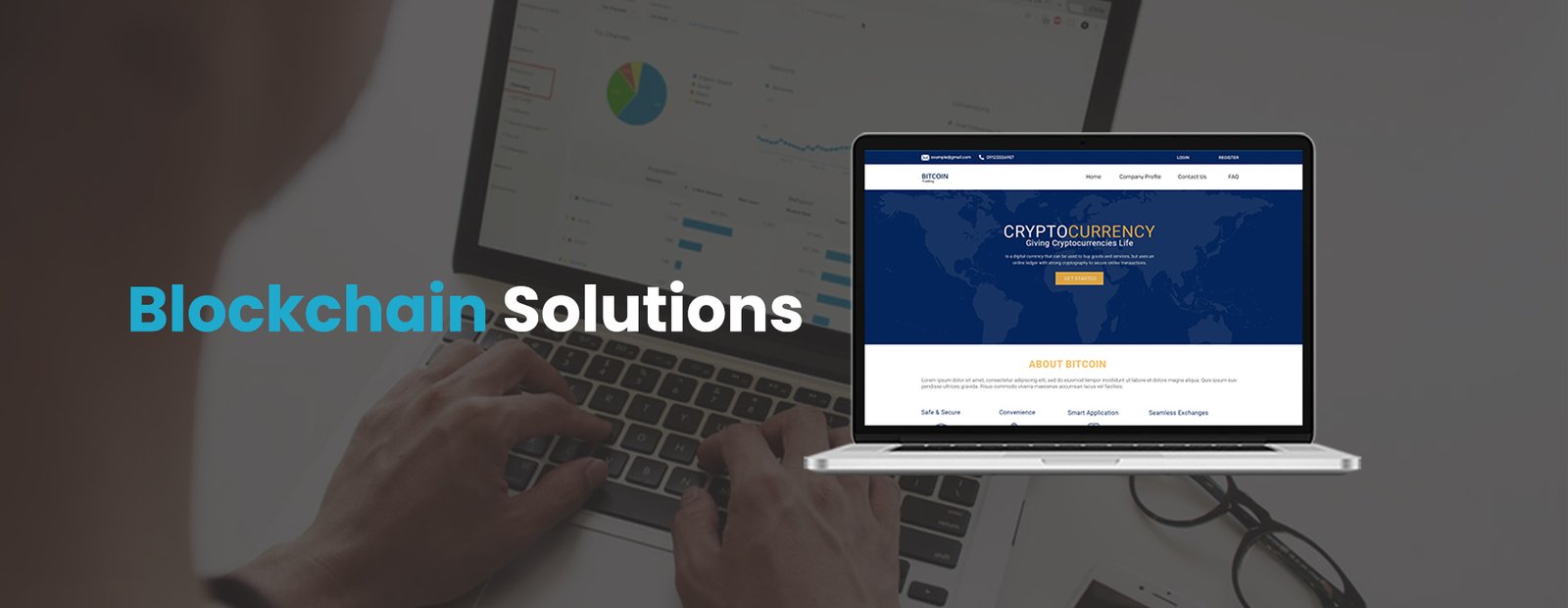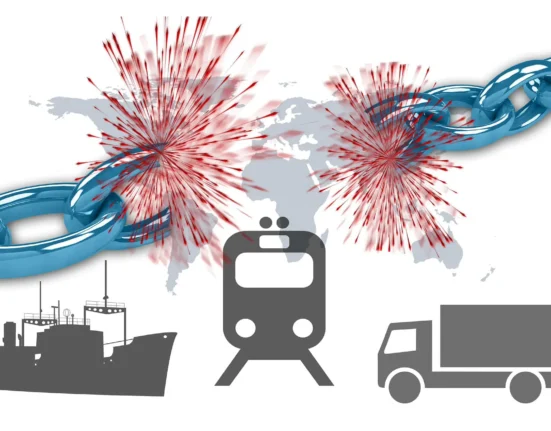In the interconnected world of global commerce, speed, security, and efficiency are more crucial than ever. As global trade continues to expand and evolve, companies are increasingly turning to blockchain technology to meet these demands. This technological breakthrough promises to reshape the way businesses approach international transactions, eliminate traditional bottlenecks, and provide a more transparent, secure, and efficient approach to cross-border trade.
Blockchain technology has emerged as a game-changer, offering major advantages over traditional systems of record-keeping and transaction processing. With a decentralized ledger that securely stores transactional data across multiple systems, businesses can track the flow of goods and services across borders with greater accuracy, speed, and trust. Companies are now using blockchain to cut down on the friction, inefficiencies, and delays that have plagued traditional trade for decades.
This revolution is not just about technology for the sake of innovation; it’s about creating a seamless, more sustainable, and scalable way of doing business. Major corporations across industries are adopting blockchain for real-time visibility, data integrity, and streamlined operations in order to gain a competitive edge in the fast-moving world of global trade.
At the core of blockchain’s impact on global trade is the concept of a decentralized ledger. Unlike traditional systems where a single centralized entity (such as a bank or government) holds and verifies data, blockchain works through a network of distributed nodes, each maintaining a copy of the ledger. These nodes independently verify the integrity of transactions and data, ensuring that once recorded, the information is immutable and cannot be altered without the consensus of the entire network.
This decentralized nature of blockchain offers several immediate advantages in trade:
- Security: Blockchain’s encryption and consensus algorithms ensure that transactions are tamper-proof, making it virtually impossible to falsify records or engage in fraudulent activities.
- Transparency: Every participant in the network has access to the same data, allowing for greater visibility and accountability.
- Speed: Blockchain eliminates intermediaries and manual verification processes, resulting in faster transaction times.
How Blockchain Is Streamlining Cross-Border Transactions
- Reducing Transaction Costs and Time Cross-border transactions traditionally involve a complex web of intermediaries, including banks, clearinghouses, insurance companies, and customs authorities. This intricate process not only takes time but also results in high fees and potential delays. Blockchain eliminates intermediaries by allowing direct, peer-to-peer transactions between parties. As a result, companies experience lower transaction fees and faster processing times.For instance, companies like HSBC have leveraged blockchain technology to settle foreign exchange trades in a matter of minutes—a process that typically takes several days using traditional banking methods. By reducing delays and cutting out the middleman, businesses can significantly increase their liquidity, allowing for smoother and more efficient trade.
- Increasing Transparency and Traceability Blockchain provides unparalleled transparency, which is particularly valuable in industries like pharmaceuticals, agriculture, and luxury goods where the provenance and quality of products must be carefully monitored. Blockchain ensures that every piece of data recorded—whether it’s a shipment’s origin, temperature, or handling history—is publicly accessible to authorized participants in the network.For example, Maersk and IBM have jointly developed TradeLens, a blockchain-powered shipping platform that offers real-time tracking of goods in transit. This system not only improves visibility but also reduces paperwork and manual data entry, cutting down on errors and fraud. Participants, including customs officers and freight forwarders, can easily access a digital audit trail of goods, ensuring compliance with regulations and improving efficiency.
- Reducing Fraud and Enhancing Security Blockchain’s secure nature makes it an ideal solution for mitigating the risks associated with fraud in global trade. In traditional trade systems, fraudulent documents or counterfeit goods can easily enter the supply chain due to poor transparency and oversight. Blockchain’s immutable ledger provides a solution by offering verifiable and trustworthy data at every stage of the supply chain.One notable example is De Beers, the world’s largest diamond company, which uses blockchain to track the origin and movement of diamonds, ensuring that they are ethically sourced and not part of the conflict diamond trade. By using blockchain’s secure system to verify the diamonds’ authenticity, De Beers not only strengthens consumer trust but also adheres to global ethical standards.
- Optimizing Payment Systems International payments have long been plagued by slow processing times and high fees, particularly when multiple banks and financial institutions are involved. Blockchain technology offers a more efficient and cost-effective solution by enabling instant payments with lower transaction fees. With blockchain, smart contracts can automatically trigger payments once specific conditions are met, eliminating the need for traditional banks and clearinghouses.Ripple, a blockchain-based payment protocol, has seen massive adoption in the financial services industry for cross-border payments. Ripple’s platform allows businesses to send money across borders within seconds, at a fraction of the cost associated with traditional methods, making it a valuable tool for companies engaged in international trade.
- Automating Compliance and Customs One of the most time-consuming aspects of global trade is navigating customs regulations and ensuring compliance with international laws. Blockchain can automate much of this process by creating a transparent, digital audit trail that automatically records relevant transaction data, such as the origin, destination, and customs documentation of goods.Walmart is a prime example of how blockchain is improving compliance and food safety in the retail industry. Through its partnership with IBM, Walmart uses blockchain to track the journey of food products from farm to store, ensuring that all products meet safety standards and comply with health regulations. This enables Walmart to quickly trace any issues or recalls, reducing the potential for outbreaks and ensuring consumer safety.
- Improving Smart Contracts for Trade Efficiency Smart contracts are self-executing contracts with the terms of the agreement directly written into code. These contracts automatically trigger actions, such as payments or deliveries, once the specified conditions are met. In global trade, smart contracts are used to automate purchase orders, payment releases, and customs clearances, eliminating manual intervention and the potential for human error.For example, Slock.it, a blockchain-powered company, has developed smart contracts that allow physical objects, such as shipping containers or rental cars, to be leased and accessed automatically, without the need for human intermediaries. This reduces the cost and time spent managing logistics, simplifying complex cross-border transactions.
- IBM and Maersk’s TradeLens TradeLens, a blockchain-based shipping solution jointly developed by IBM and Maersk, is already revolutionizing global trade by providing end-to-end visibility and traceability of shipments. This platform reduces delays, improves transparency, and provides participants with reliable, real-time data about the status of their shipments. With over 90 partners, including ports, customs authorities, and other logistics companies, TradeLens is leading the way in blockchain adoption for the global shipping industry.
- HSBC and Ripple for Cross-Border Payments HSBC, one of the world’s largest financial institutions, has adopted blockchain to facilitate cross-border payments, drastically reducing settlement times and fees. Through its partnership with Ripple, HSBC has begun using blockchain to streamline transactions and increase liquidity in the global financial system.
- Walmart’s Blockchain-Enabled Food Safety Walmart is using blockchain to ensure the traceability of its food products. By working with IBM’s Food Trust Blockchain, Walmart can monitor the journey of every food product, ensuring that it meets safety standards and regulatory requirements. In the event of a contamination outbreak, the company can quickly trace the affected products and remove them from the shelves.
- De Beers and Blockchain for Diamonds De Beers has implemented blockchain technology to provide full traceability of its diamonds. By recording every transaction on an immutable ledger, De Beers guarantees that consumers can verify the ethical sourcing and authenticity of diamonds before purchase, enhancing trust and consumer confidence.
Despite its tremendous potential, blockchain adoption in global trade faces several challenges. The transition to blockchain involves significant initial investment and a steep learning curve for many organizations. Furthermore, regulatory issues and government oversight around blockchain remain unresolved, with countries yet to create a unified framework for its use.
However, these challenges are likely to diminish as blockchain becomes more established in the business world. As standards and best practices evolve, it’s expected that blockchain technology will become a central player in global trade.
Blockchain’s impact on global trade is undeniable. As more and more global companies adopt decentralized systems for supply chain management, payment systems, and customs compliance, the benefits will only grow. Blockchain has the potential to create a more secure, efficient, and transparent global trade system—one that is built for the future. The transformation is already underway, and it is only a matter of time before blockchain becomes the norm, not just an exception, in global commerce.







Leave feedback about this